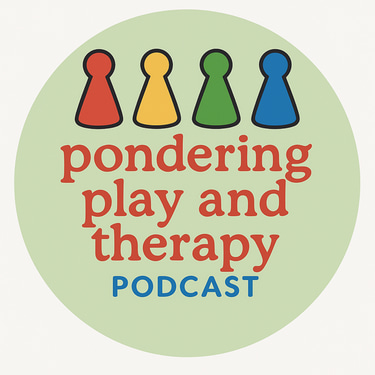Navigating Therapeutic Support in Fostering: Insights with Jaid Bennett
In this week’s episode of Pondering Play and Therapy, I was joined by Jaid Bennett, Deputy Regional Manager at Fusion Fostering in the Southwest. Jaid brought a wealth of insight into the world of fostering, from the rigorous application process to the day-to-day realities of supporting children who have often experienced trauma.
Philippa with Assistant of AI
10/10/20252 min read


What does fostering involve?
At its heart, fostering is about opening your home and life to a child who cannot live with their birth family. As Jaid explained, Fusion Fostering supports around 60 households and 70 young people, making sure each child is safe and cared for.
While the question often begins with “Do you have a spare room and a big heart?”, the reality is more complex. Potential foster carers go through a four-to-six-month assessment process involving training, reflection on motivations, and preparation for the challenges of caring for children with big emotions and difficult histories.
Therapeutic support for carers and children
Many children in foster care have experienced trauma, loss, or neglect. This can show up as behaviours that feel “bigger” than typical childhood challenges. Fusion Fostering has responded by embedding therapeutic approaches into their work.
Carers can access:
· Therapeutic life story work
· Clinical reflective sessions
· Training in PACE (Playfulness, Acceptance, Curiosity, Empathy)
· Support from therapists trained in approaches such as DDP (Dyadic Developmental Psychotherapy)
These tools help carers see beyond the behaviour to the underlying pain or fear, and to respond with empathy rather than punishment. As Jaid put it, “We want children to feel good about themselves, not weighed down by shame.”
Moving beyond traditional parenting
One of the striking parts of our conversation was around shame and guilt. Children who have experienced trauma can easily internalise the belief that they are bad, rather than simply having made a poor choice. Traditional discipline can reinforce this, whereas therapeutic approaches focus on sitting alongside the child in their feelings, offering connection and empathy.
An everyday example? When a PlayStation controller gets smashed in frustration, the natural consequence may be not being able to play – without the need for added anger or blame from adults.
Creativity and participation
I loved hearing about how Fusion is using creative tools, including AI-generated therapeutic stories and images, to help children make sense of their experiences. Imagine a personalised storybook featuring fox characters who mirror a child’s own family situation, or a comic strip that captures a young person’s feelings. These creative interventions can make therapy accessible, relatable, and even fun.
Equally inspiring is Fusion’s commitment to youth participation. Children are given a voice not only in their own care, but also within the agency. Recently, young people have even taken part in children’s panels to meet prospective foster carers and feed back their views – a powerful step in making fostering more child-centred.
The role of the foster carer
Foster carers are at the heart of the therapeutic work. While social workers, therapists, and agencies all play vital roles, it is the carers who provide the daily nurture, patience, and empathy children need to thrive. Jaid highlighted that life experience – even things people worry might “count them out” – can often be the very qualities that make someone an excellent foster carer.
Thinking about fostering?
If you’ve ever wondered about fostering, Jaid’s message is simple: don’t rule yourself out. Single carers, older carers, LGBTQ+ carers, and even those with past life challenges are all welcomed. What matters most is empathy, openness, and the willingness to keep learning.
✨ If you’d like to learn more about Fusion Fostering, you can find details. https://fusionfostering.com/
And if you missed the episode, you can catch it now on Pondering Play and Therapy – it’s an inspiring conversation full of honesty, creativity, and hope.
